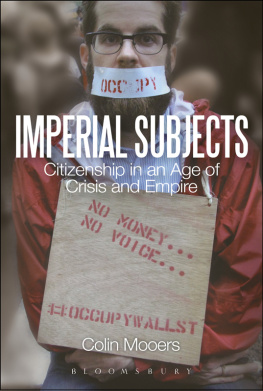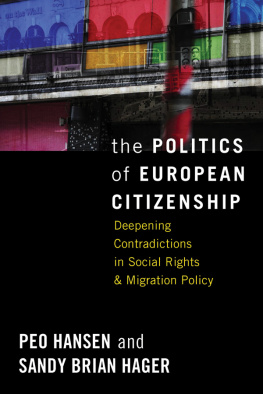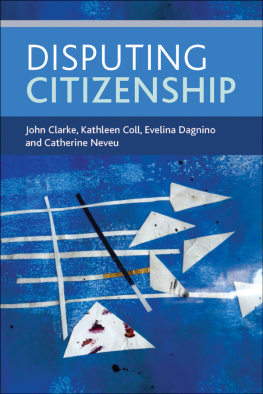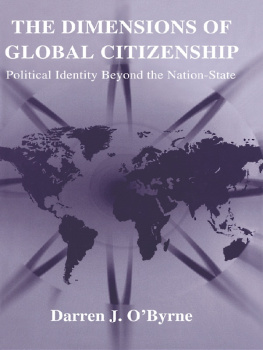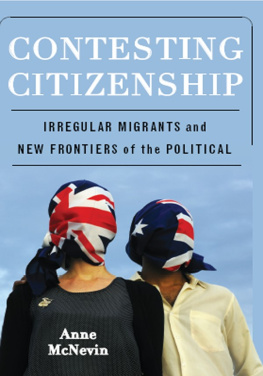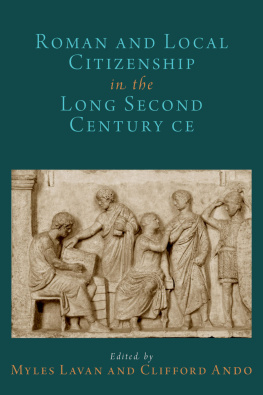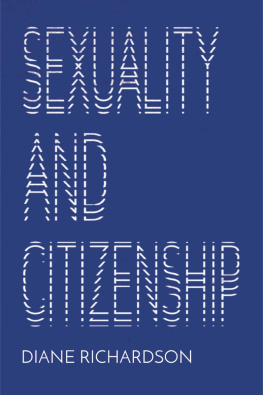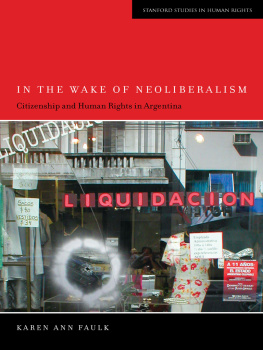W orks of this sort are always collective endeavours. The ideas and arguments developed here are the result of countless discussions with friends, colleagues and comrades over many years. I thank especially David McNally and Alan Sears for their careful reading of the manuscript at various stages in its development. Their suggestions and criticisms have, I am sure, saved me from making many more errors than may be evident in the final text. Thanks also to the anonymous reviewer of an earlier draft of the manuscript and to the editorial staff at Bloomsbury for their invaluable suggestions. Whatever faults remain are my own. Un gran abrazo to the renowned Chilean artist Alfredo Jaar, for providing the photo and cover design. Thanks also to Atif Nasim, whose research and editorial skills were indispensable throughout the completion of the manuscript. Final thanks must go to Marnie Fleming, who tolerated my wilder flights of abstraction with equanimity, understanding and love. This book is dedicated to her.
T he title of this book may strike some readers as quaintly anachronistic. To speak of imperial subjects, it might be thought, is to conjure a faded past of jodhpurs, pith helmets and Kipling by candlelight. Equally vexing might be the conjunction of the term citizenship with capitalism and imperialism. To such readers, the suggestion that there might be some necessary, as opposed to accidental, set of forces or processes which link these three terms will seem tendentious. But the burden of my argument is to show precisely that the coincidence of these economic and political forms is not accidental. Indeed, both forms of rule have their origins in the replacement of extra-economic forms of civic status which existed in pre-capitalist societies with the predominantly market-based forms that emerged with early capitalism. And, while it is certainly true that there are vast differences between the formal empires of the eighteenth and nineteenth centuries and the largely informal, market-based type of imperial rule which exists today, our colonial present, as Derek Gregory asserts, still bears strong continuities with the past.
The British colonial empire of the second half of the nineteenth century was constructed on the basis of the capitalist ideology of free trade and private property, though it was careful to choke off any such practices among its colonies. India, for example, was arguably more economically and socially underdeveloped at independence in 1947 than it had been in the eighteenth century. To be an imperial subject in nineteenth- and early twentieth-century India meant the continuation of a form of legal servitude backed by force and fealty to the British crown. For the white-settler colonialists in Canada or Australia, the terms of colonial subject-hood were far less burdensome, which is more than can be said for the indigenous peoples they displaced. The violent dispossession and enslavement of the indigenous peoples of the Americas was an essential precondition of all later forms of the capitalist development. For many indigenous communities, numerous forms of colonial servitude still remain, while the most basic aspects of citizenship, like the right to vote, have only been grudgingly granted in the second half of the twentieth century. The effects of internal colonialism kept them marginalized from market relations. More recently, however, the predations of extractive capitalism in the form of resource development have subjected their communities to violent forms of market dispossession with very little promise of long-term employment in the wage-economy. But, even for the white-settler colonists an elaborate, racialized class hierarchy was key to their civic status. Irish indentured labourers in the American South, for example, were considered sufficiently non-white to be tried out first as chattel slaves by the great plantation owners before they turned to African slaves as a source of cheap and dependable labour. For those who were the subjects of colonization, in other words, different forms of legal servitude were allowed to coexist with civic forms more appropriate to capitalism well into the twentieth century. By the same reasoning, Marx referred to plantation slavery in the American South as capitalist slavery because of the way in which cotton production was inserted within a world market dominated by the British cotton industry. In the technical terminology Marx would use in Capital, these forms of legal servitude represented the formal subsumption of labour to capital. That is, while their outward form appeared to be still pre-capitalist, these labour forms had already been incorporated into the logic of capitalism. The same principle may be said to hold for the relationship between territorial empire and informal empire; in specific historical conditions, both forms may be present at the same time and in the same location. The people of Palestine, for example, can be said to experience both a version of formal settler-colonialism by the Israeli state, alongside, and often in direct cooperation with, larger and more informal regional and global imperial powers. The mutually reinforcing link between these two forms of empire can be seen in the way in which Palestinian labour functions both as a reserve army of cheap labour under the direct military control of the Israeli state and, more informally, as a source of migrant labour in the greater Gulf region.
What makes these examples of settler-colonialism different from the older colonial empires is that they are inserted within a global system which is today unequivocally capitalist. Following the First World War, it became evident that the maintenance of territorial empire was actually a hindrance in the competition for hegemony in the world market, and in the face of nascent anti-colonial struggles, most states opted to dispense with their colonial holdings following the Second World War. Imperial power thereafter would rest chiefly on non-territorial, market-based forms of domination and control. What is important to note here is that, over time, a new definition of imperialism was emerging, one in which older forms of colonial surplus-extraction based on direct political and military coercion were being replaced with more indirect, market-based forms of exploitation in which what mattered was the production of capitalist profit. Forms of internal colonialism would persist but in ways adapted to the domination of capitalist market relations.
Capitalist social-property relations first emerged in English agriculture in the seventeenth and eighteenth centuries. There, agrarian capitalism had developed through domestic colonization, the removal of waste and the application of agricultural improvements, and the enclosure of common lands and a new conception of property rights (Mooers 1991; Wood 2003). The consolidation of agrarian capitalism through enclosure, expropriation and the destruction of customary rights was never a peaceful affair; the primitive accumulation of capital, as Marx (1977, 875) recognized, is written in the annals of mankind in letters of blood and fire. These early transformations wrought by primitive accumulation had several key consequences: first, a new class of producers came into being that was now wholly dependent on the market for survival the modern class of wage-labour. Wage-labour would become the social precondition for the emergence of capitalist industry as well as for the particular form taken by citizenship rights and democracy in liberal capitalist societies. In terms of empire, the advent of agrarian capitalism opened up new possibilities for colonization as well as providing a reliable social safety-valve for those who had been dispossessed by land enclosures in the metropoles by providing them with new opportunities as colonial settlers. Moreover, its colonies were able to provide it with the necessary inputs (often extracted through the use of slave labour) to fuel capitalist industry at home (Wood 2002, 8388).

